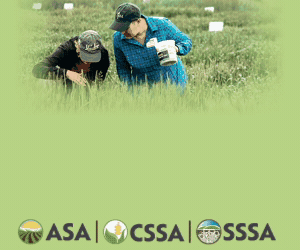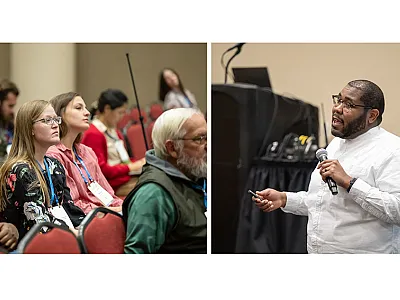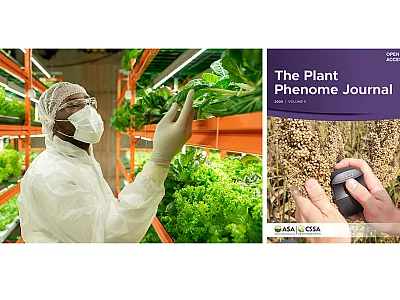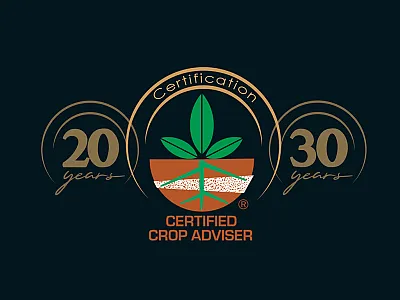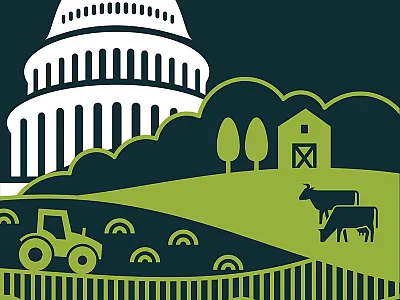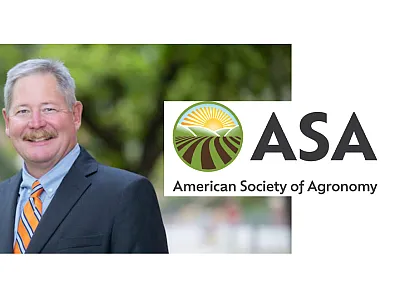CCAs Take Farm Bill Priorities to Congress
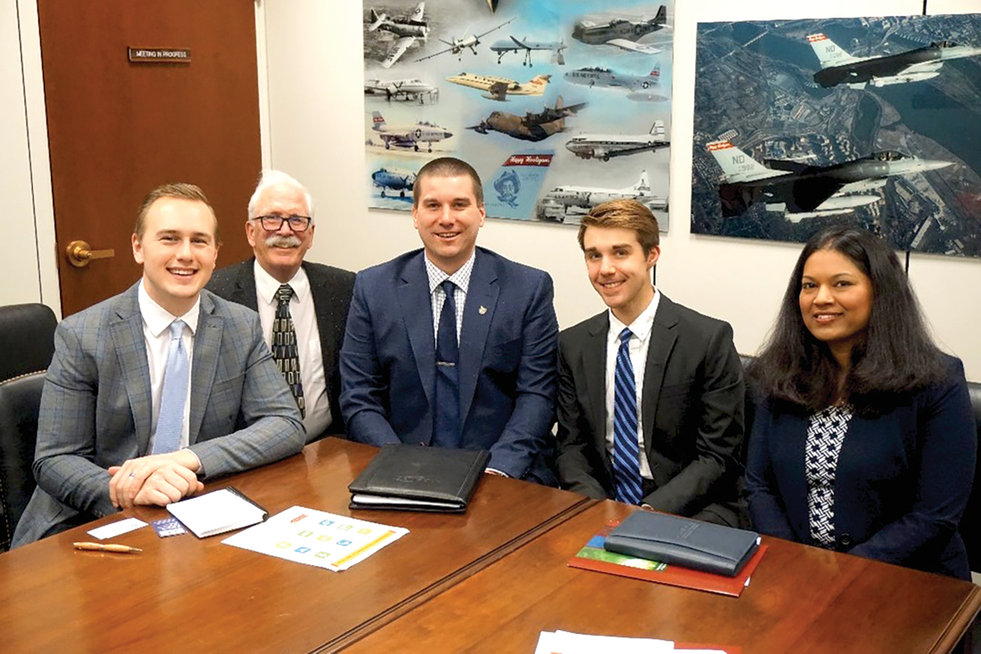
One of the most effective ways to advocate for CCAs in Washington, DC is to go straight to the source. In February, during our annual Congressional Visits Day, CCAs, students, and researchers ascended upon Capitol Hill to make requests for research funding and to share farm bill priorities of the American Society of Agronomy (ASA), Crop Science Society of America (CSSA), and Soil Science Society of America (SSSA). While this is our largest annual event on the Hill, this was only the first step this year in advocating for our farm bill priorities.
What Is the Farm Bill?
The farm bill is the nickname for the piece of federal legislation passed every five years by Congress that addresses agricultural and food policy. The farm bill governs an array of agricultural programs—commodity support, nutrition assistance, conservation, and agricultural research. The farm bill is an opportunity for our community to work with legislators to propose policy changes that would improve and advance agriculture research. This year, we are also focused on improving conservation technical assistance delivery through the USDA‐NRCS’s Technical Service Provider (TSP) program.
The 2023 Farm Bill
ASA, CSSA, and SSSA began planning for the 2023 farm bill reauthorization process nearly two years before the 2018 farm bill was set to expire. The Science Policy Office of the three Societies worked with the Farm Bill Task Force, made up of ASA, CSSA, and SSSA volunteer members and practicing professionals, to identify research and policy priorities for the new farm bill. In June of 2022, a survey on current farm bill programs was distributed for input, and based on the results of the survey, our top five 2023 farm bill priorities were released in November of 2022:
- Provide robust, consistent, and diverse support for agricultural research.
- Improve coordination of climate research to enable translational research.
- Facilitate FAIR data collection, sharing, storage, and reuse.
- Support equitable outcomes in research, extension, education, and production.
- Leverage networks of trusted, on‐farm advisers to meet technical assistance needs.
While these priorities may seem vague, they provide principles for engagement with Congress as the farm bill is written this year. We have taken this list and identified tangible ways that we can serve researchers, students, crop advisers, and soil scientists with our policy priorities. For example, we are currently pursuing farm bill language that would improve the NRCS TSP program to make it more accessible to certified professionals who already have close working relationships with producers—a tangible outcome from Priority 5 above.
Improving the TSP Program
Our Societies have been recognized by NRCS as a third‐party provider for conservation technical assistance since the TSP program began. However, despite our working relationship over the past two decades, we still hear that certified professionals have a difficult time enrolling in the TSP program. In the 2023 farm bill survey, we identified several ways that NRCS could improve the TSP program:
- Accept certification without further requirements to become a TSP.
- Host educational content through professional societies and certifying bodies.
- Focus on outcomes rather than specific software requirements.
- Provide direct payments to the TSP for technical assistance work.
- Simplify the renewal process to allow automatic renewal if continuing education requirements are met.
We are exploring multiple pathways to support these recommendations. Currently, NRCS has almost complete authority of the TSP program because the program is not well defined by legislation. We meet with NRCS regularly to make suggestions that would benefit our practicing professionals and add value to your certification. Congress is also exploring what it would look like to make the TSP program more defined in legislative statute. We have been working closely with legislative partners to make sure that any legislation proposed in the farm bill will benefit our certified professionals and ultimately, the producers that you serve.
What’s Next?
Much of the farm bill text is still up in the air, but we have talked with several lawmakers who are planning to introduce legislation supporting an improved and better defined TSP program. In April, leaders in the CCA community met with House and Senate Agriculture Committee members to discuss key legislation and make sure that lawmakers know how important it is for CCAs and farmers to get this language included in the farm bill. The farm bill process is a marathon, not a sprint, so sustained contact and advocacy will be critical to keep this issue top of mind.
On July 11–12, 2023, for the very first time, we will be bringing CCAs from across the United States to Washington, DC for a CCA‐only Congressional Visits Day. The primary advocacy priority will be to continue pushing for TSP program reform and to share the value of becoming a certified professional with lawmakers. If you are interested in participating in the CCA Congressional Visits Day, please reach out to your local board leadership by June 1.
Can't make it to Washington, DC, but are interested in joining these advocacy efforts? You can join one of our Policy Rapid Response Teams, focused on Nutrient Management, Integrated Pest Management, Soil & Water Management, and Crop Management. We also encourage you to engage with your lawmakers to share the value of being a certified professional for you and for the producers you serve. Reach out to sciencepolicy@sciencesocieties.org for more information.
We have been working closely with legislative partners to make sure that any legislation proposed in the farm bill will benefit our certified professionals and ultimately, the producers that you serve.
Text © . The authors. CC BY-NC-ND 4.0. Except where otherwise noted, images are subject to copyright. Any reuse without express permission from the copyright owner is prohibited.


